What Causes Foundation Problems?
If you suspect your home has foundation problems and you’re considering the cost of a foundation repair service you might also be wondering what caused your home’s concrete foundation to fail. Is there anything you could have done to prevent the damage or are there steps you can take to prevent future damage.
In this article, we’ll give you some insight into the leading causes of foundation problems. In short, you’ll see that some foundation problems are more avoidable than others.
Common Causes of Foundation Problems
#1: Poor soil conditions can cause foundation problems
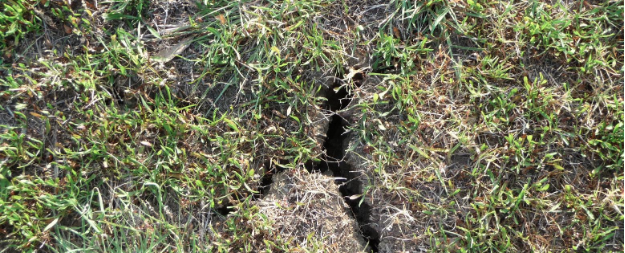
Poor soil conditions are one of the leading causes of foundation problems. Large parts of North and East Texas have a high frequency of expansive soil, this includes nearly all of the Dallas area all the way up to Oklahoma. Expansive soil is often referred to as expandable soil, expansive clay, and even gumbo mud or gumbo soil.
Changes in moisture levels affect the clay composition around the foundation. Expansive soil acts like a sponge, during rainy seasons it expands and during dry seasons it contracts. This fluctuation between expansion and contraction can swing the soil’s volume by more than 10% causing immense stress to your home’s foundation.
What part of your foundation is most affected by changes in moisture levels? The perimeter of the foundation is most affected by moisture because it’s most exposed to the seasonal moisture change. The center of the slab rarely changes in moisture content but change around the perimeter can exert enough force to break the foundation.
#2: Landscaping near your foundation can cause moisture problems
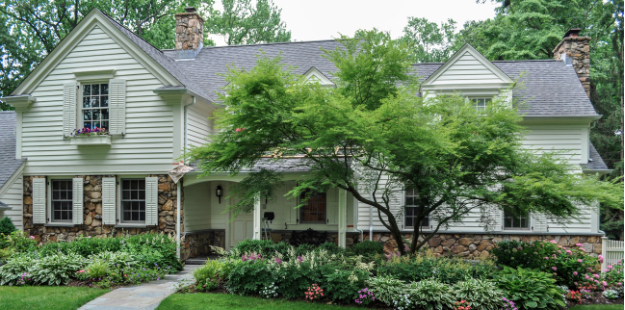
Foundation problems are primarily caused by fluctuating moisture in the soil surrounding the slab. While trees and plants improve your home’s curb appeal some have extensive root systems that require large amounts of moisture.
Moist soil around the slab provides a source of water for plants but drains moisture around your home’s foundation. Draining the soil around the foundation of moisture leads to soil contraction and causes the slab to settle.
#3: Plumbing problems can create long-term foundation damage
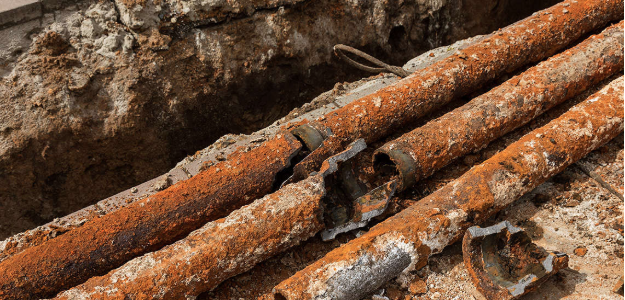
The root cause of foundation problems in some homes happens to be the plumbing. Sewer lines are generally routed beneath the foundation so when leaks develop water flows under the foundation.
With older homes, cast iron plumbing has become a problem. Commonly used in the 1960s and early 1970s cast iron plumbing has reached an age where it has begun to deteriorate and erode. Deterioration causes leaks and weakness beneath the foundation.
Plumbing problems can cause the soil directly beneath the home to infuse with water and lead to long-term damage. As you can imagine, this adds another element to the fluctuating moisture around and underneath the home’s foundation. When all the soil expands or contracts evenly problems are unlikely but when different areas of the foundation are affected movement can cause cracks and other damage.
#4: Faulty construction can lead to future foundation problems
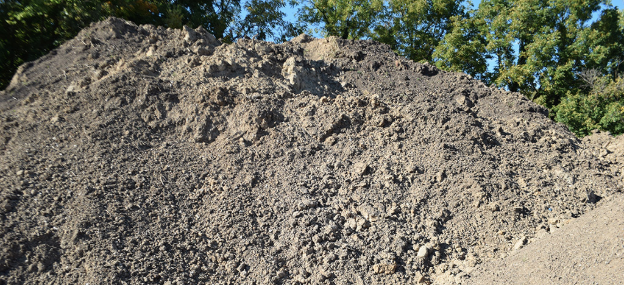
Faulty construction can also lead to foundation problems. Homes built on fill dirt or those that do not have adequate soil compaction around the foundation eventually have to deal with failing foundations. As the soil moves and the foundation shifts, it is more likely to fail than foundations that meet building standards.
#5: Poor drainage and standing water can cause foundation problems
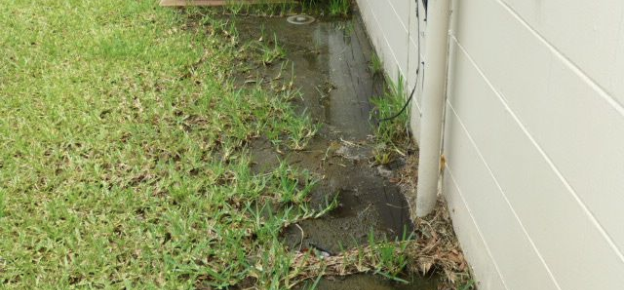
Improper drainage can also cause damage to your foundation. Water should flow away from your home as standing water in your yard or in your home can cause foundation problems. When water begins to pool the soil expands and thrusts upward causing the foundation to move upward. Eventually, when the soil begins to dry out it compacts and causes the foundation to settle.
Unfortunately, most gutters don’t drain the water far away from your foundation and even with the best gutters, water flow changes over time and should be monitored to avoid serious foundation problems.
If your home is built in an area known for expansive soil you’ll want to watch your home for signs of a bad foundation and practice effective water management. It’s easier to prevent foundation problems than it is to fix them.

